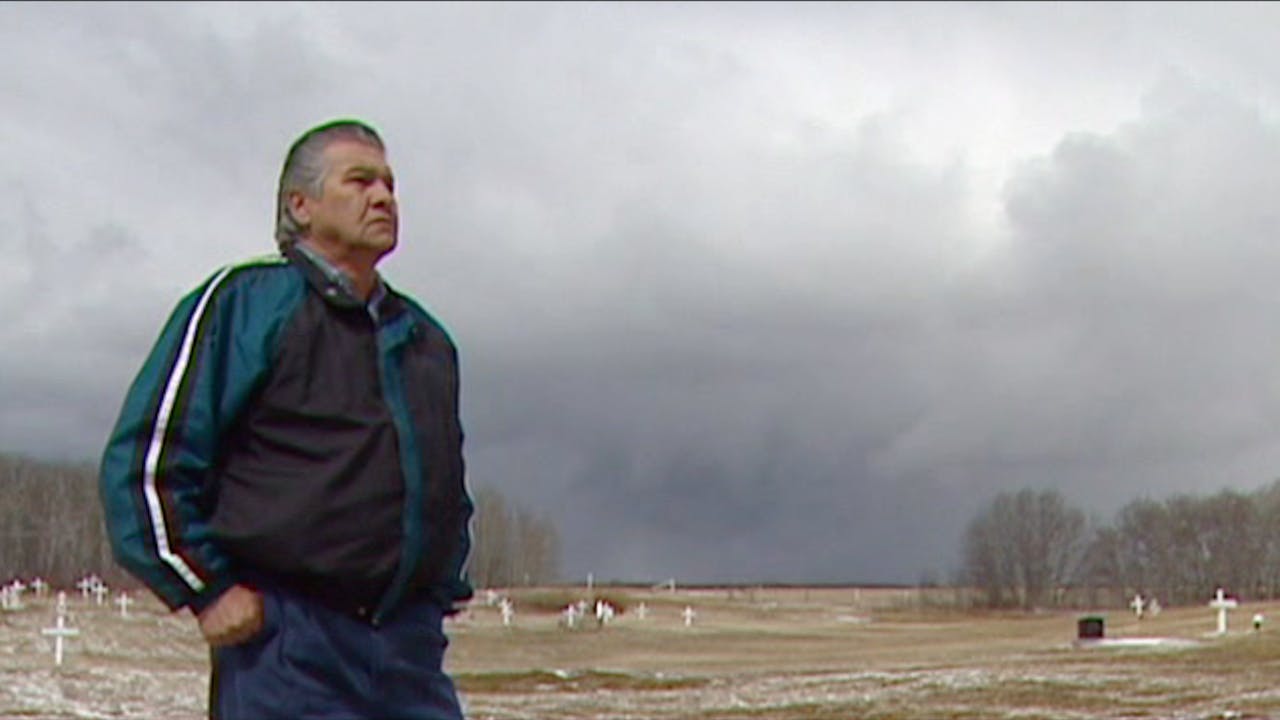La Voix des Mechif: Le cercle imparfait: la...
“Le cercle imparfait: la colonisation” La Voix des Mechif: Episode 3
(2010, 22 minutes)
This part covers the period following the 1885 Battle at Batoche and the role of the scrips program. The Canadian Government's commissioners handing out the scrips were accompanied by speculators who preyed on the Métis people to buy the scrips for a fraction of their worth. The Métis were reduced to squatters on what had been their own land. George Fleury's ancestors had lived in Ste-Madeleine near the Manitoba-Saskatchewan border. He was born there too and recalls how they were forced to move out in 1939 when the PFRA wanted the village to be turned into a community pasture. His family returned from a day's work to find all the houses, the store and their church burned to the ground. They were left with only the clothes on their backs and forced to become transient, living on road allowances. During this period, the Métis were caught in a jurisdictional vacuum with neither federal nor provincial governments taking any responsibility for them. The Alberta Government recognized the severe hardships the Métis were facing. Knowing that the Canadian Government would do nothing to help, Alberta passed the Métis Betterment Act and gave the Métis a land base. This led to the creation of successful communities like St. Paul, where the people have a sense of destiny connected to stewardship of the land.
“La Voix des Mechif” is a series of three, 23-minute documentaries on the Red River Mechif or Métis people, produced and directed by Mechif historian, educator and storyteller Dr. Raoul McKay. It reveals the origin of a distinct nation with land, laws, its own language and culture.
Directed by: Brian Rougeau
Produced by: Dr. Raoul McKay, First Voice Media, 2002
For educational licensing (DSLs) and educational DVDs visit https://movingimages.ca/
-
Le cercle imparfait: le colonization (The Imperfect Circle: Colonisation) (E3)
From 1885 to the 1930s, the Mechif remained a homeless people without jurisdiction. Some moved west to Saskatchewan and Alberta. Others remained in Manitoba. Those in the village of Sainte-Madeleine, near the Saskatchewan-Manitoba border, remained there as they always had, believing they had the ...


